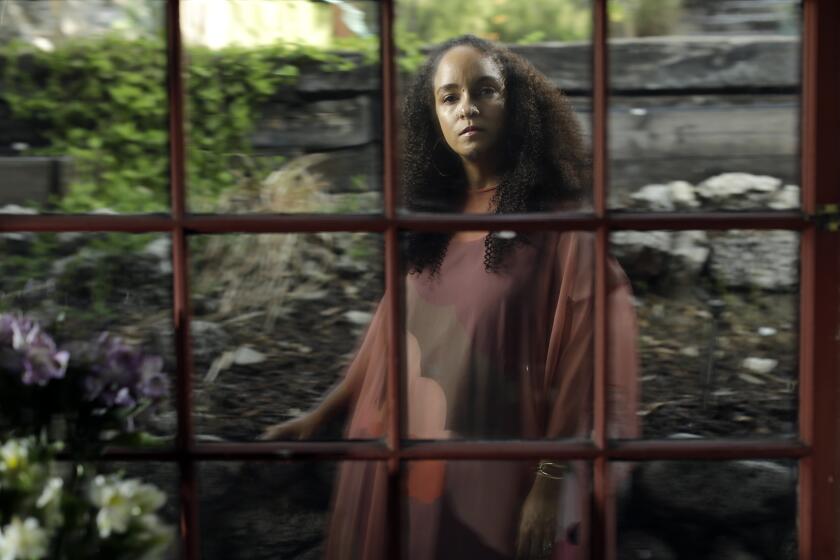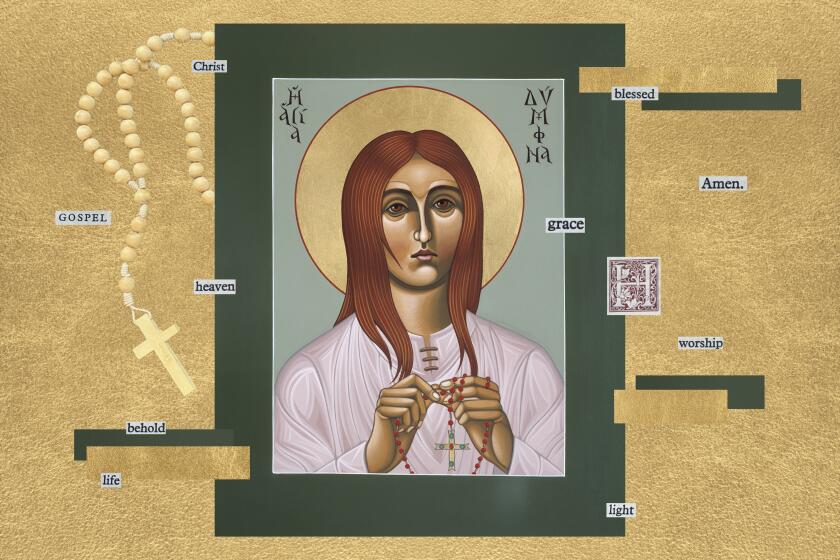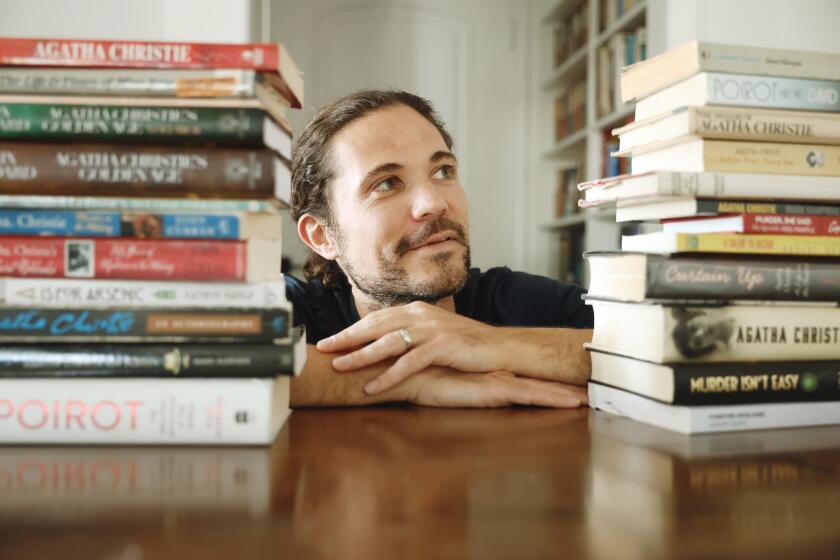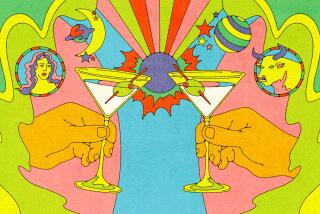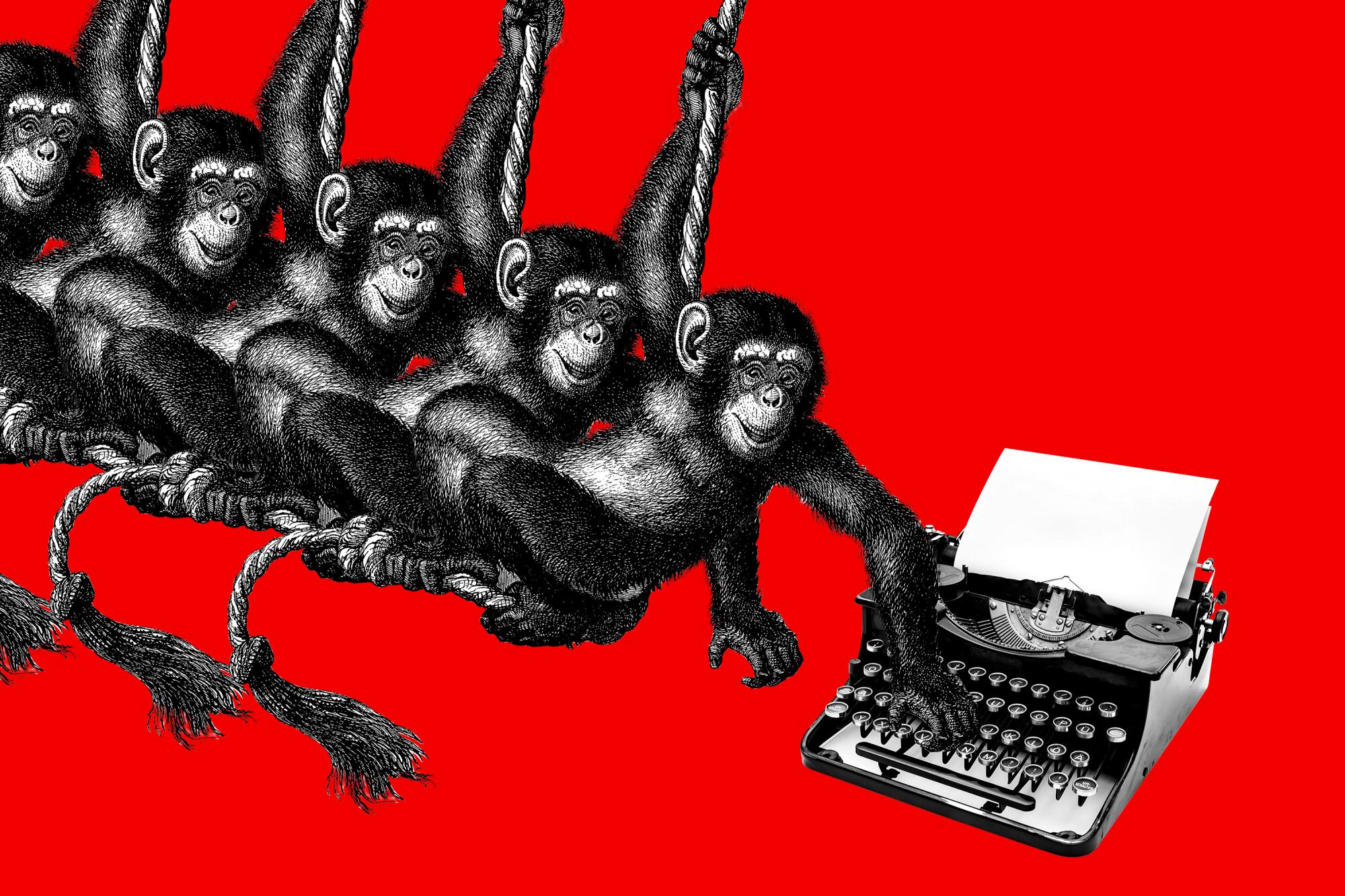
- Share via
In February 1973, Dr. Bernard Beitman found himself hunched over a kitchen sink in an old Victorian house in San Francisco, choking uncontrollably. He wasn’t eating or drinking, so there was nothing to cough up, and yet for several minutes he couldn’t catch his breath or swallow.
The next day his brother called to tell him that 3,000 miles away, in Wilmington, Del., their father had died. He had bled into his throat, choking on his own blood at the same time as Beitman’s mysterious episode.
Overcome with awe and emotion, Beitman became fascinated with what he calls meaningful coincidences. After becoming a professor of psychiatry at the University of Missouri-Columbia, he published several papers and two books on the subject and started a nonprofit, the Coincidence Project, to encourage people to share their coincidence stories.
“What I look for as a scientist and a spiritual seeker are the patterns that lead to meaningful coincidences,” said Beitman, 80, from his home in Charlottesville, Va. “So many people are reporting this kind of experience. Understanding how it happens is part of the fun.”
Researchers who study coincidences are divided over their significance. Some, like Beitman, believe they suggest a deeper connection between our minds and the material world than modern science can explain. Others see coincidences as pure mathematical probabilities akin to the “infinite monkey theorem” that states that a monkey hitting keys on a typewriter randomly for an infinite amount of time will eventually produce the works of Shakespeare. Unlikely perhaps, but not inexplicable.
Still, most coincidence scholars agree that noticing coincidences and interrogating them help us gain a greater appreciation of the way the world works.
Beitman defines a coincidence as “two events coming together with apparently no causal explanation.” They can be life-changing, like his experience with his father, or comforting, such as when a loved one’s favorite song comes on the radio just when you are missing them most.
Are coincidences just random acts, or the work of fate or God? You be the judge for these five extraordinary coincidences.
The element of surprise is essential, said Mark Johansen, a psychology professor at Cardiff University in Wales. “When you experience a coincidence, you are surprised because there was an event that conflicts with your causal model of how the world works,” he said. “There’s a mismatch.”
Although Beitman has long been fascinated by coincidences, it wasn’t until the end of his academic career that he was able to study them in earnest. (Before then, his research primarily focused on the relationship between chest pain and panic disorder.)
He started by developing the Weird Coincidence Survey in 2006 to assess what types of coincidences are most commonly observed, what personality types are most correlated with noticing them and how most people explain them. About 3,000 people have completed the survey so far.
Beitman is still collecting data, but he has drawn a few conclusions. The most commonly reported coincidences are associated with mass media: A person thinks of an idea and then hears or sees it on TV, the radio or the internet. Thinking of someone and then having that person call unexpectedly is next on the list, followed by being in the right place at the right time to advance one’s work, career or education.
People who describe themselves as spiritual or religious report noticing more meaningful coincidences than those who do not, and people are more likely to experience coincidences when they are in a heightened emotional state — perhaps under stress or grieving.
The most popular explanation among survey respondents for mysterious coincidences: God or fate. The second explanation: randomness. The third is that our minds are connected to one another. The fourth is that our minds are connected to the environment.
Psychics, tarot readers and astrologers say scammers are cloning their Instagram accounts and soliciting payments from their followers for faux readings.
For Beitman, no single explanation suffices. “Some say God, some say universe, some say random and I say ‘Yes,’” he said. “People want things to be black and white, yes or no, but I say there is mystery.”
He’s particularly interested in what he’s dubbed simulpathity — feeling a loved one’s pain at a distance, as he believes he did with his father. Science can’t currently explain how it might occur, but in his books he offers some nontraditional ideas, such as the existence of “the psychosphere,” a kind of mental atmosphere through which information and energy can travel between two people who are emotionally close though physically distant.
In his new book published in September, “Meaningful Coincidences: How and Why Synchronicity and Serendipity Happen,” he shares the story of a young man who intended to end his life by the shore of an isolated lake. While he sat crying in his car, another car pulled up and his brother got out.
When the young man asked for an explanation, the brother said he didn’t know why he got in the car, where he was going, or what he would do when he got there. He just knew he needed to get in the car and drive.
As anxiety and depression rates have skyrocketed in recent years, Catholics turn to St. Dymphna, the patron saint of mental health.
“I don’t say I’m right, but I’m telling you this stuff happens,” Beitman said. “Scientists have difficulty believing it because they don’t know how it happens.”
David Hand, a British statistician and author of the 2014 book “The Improbability Principle: Why Coincidences, Miracles, and Rare Events Happen Every Day,” sits at the opposite end of the spectrum from Beitman. He says most coincidences are fairly easy to explain, and he specializes in demystifying even the strangest ones.
“When you look closely at a coincidence, you can often discover the chance of it happening is not as small as you think,” he said. “It’s perhaps not a one-in-a-billion chance, but in fact a one-in-a-hundred chance, and yeah, you would expect that would happen quite often.”
Take winning the lottery twice. If you have a 1-in-a-100-million chance of winning the lottery once, he said, then the chance of winning twice is 1 in 100 million squared — a seemingly impossible event. But, if you consider the number of people who play the lottery, and the number of times they buy tickets, then it becomes almost certain that someone, somewhere, will win twice — and in fact, several people have done just that.
Hand calls this the law of truly large numbers. “You take something that has a very small chance of happening and you give it lots and lots and lots of opportunities to happen,” he said. “Then the overall probability becomes big.”
For six years, thousands of Agatha Christie enthusiasts across the globe have downloaded the podcast for what one listener described as a ‘joyfully geeky’ take on the Queen of Crime’s expansive canon.
Asked how he understood Beitman’s experience with choking at the same time as his father, Hand questioned whether another person, less sensitive to coincidences, would have noticed the coincidence at all. Such a person might simply have assumed he had a dry throat.
Would Beitman have been just as amazed if he’d choked at the same time as a sibling lay dying — or a friend, a professor, or a neighbor? Each additional person on the list makes the probability of one of those events happening more likely, Hand said.
But just because Hand has a mathematical perspective doesn’t mean he finds coincidences boring. “It’s like looking at a rainbow,” he said. “Just because I understand the physics behind it doesn’t make it any the less wonderful.”
Beitman quotes Hand’s work extensively in his latest book, and said Hand’s thinking has sharpened his own perspective. Still, he finds Hand’s take limiting. “Whether they say it’s probability or God, I just go crazy with people who think there’s only one thing that causes coincidences,” he said.
Johansen, the psychology professor at Cardiff, and his colleague Magda Osman, a professor of basic and applied decision-making at the University of Cambridge, are particularly interested in how we determine whether a coincidence is a chance event or not.
Paying attention to coincidences, Osman and Johansen say, is an essential part of how humans make sense of the world. We rely constantly on our understanding of cause and effect to survive.
“Coincidences are often associated with something mystical or supernatural, but if you look under the hood, noticing coincidences is what humans do all the time,” Osman said.
Even scientists are not exempt.
For example, the COVID-19 pandemic is largely believed to have begun when a virus jumped from an animal host to a human at a wet market in Wuhan, China. Is it also just a staggering coincidence that in Wuhan there is a lab facility that studies coronaviruses?
“This question has driven scientific decisions in examining alternative pathways to the origin of the virus,” Osman said. “Whether or not the second explanation remains just a coincidence or a viable alternative, causal explanation is now a matter of considerable scientific, public and international debate and controversy.”
Charles Zeltzer, a clinical psychologist and Jungian analyst in Santa Barbara County, offers another perspective. Zeltzer has spent 50 years studying the writings of Carl Jung, the 20th century Swiss psychologist who introduced the modern Western world to the idea of synchronicity. Jung defined synchronicity as “the coincidence in time of two or more causally unrelated events which have the same meaning.”

One of Jung’s most iconic synchronistic stories concerned a patient who he felt had become so stuck in her own rationality that it interfered with her ability to understand her own psychology and emotional life.
One day, the patient was recounting a dream in which she’d received a golden scarab. Just then, Jung heard a gentle tapping at the window. He opened the window and a scarab-like beetle flew into the room. Jung plucked the insect out of the air and presented it to his patient. “Here is your scarab,” he said.
The experience proved therapeutic because it demonstrated to Jung’s patient that the world is not always rational, leading her to break her own identification with rationality and thus become more open to her emotional life, Zeltzer explained.
Like Jung, Zeltzer believes meaningful coincidences can encourage people to acknowledge the irrational and mysterious. “We have a fantasy that there is always an answer, and that we should know everything,” he said.
Studies suggest most people notice about one coincidence a week, and most of us have at least one favorite to share, including the author of this story.
I’d been on the fence about writing about coincidences when I arranged to meet a friend at a cafe about 20 minutes from my house. When I arrived, I was surprised to see the foreign editor of The Times. (Coincidence one.) I hadn’t seen him since the beginning of the pandemic, and he invited me to join him until my friend arrived.
I mentioned that the friend I was meeting works as a foreign correspondent for another newspaper. It turned out he was possibly looking to hire someone in the same city where my friend is living. (Coincidence two.) When my friend arrived, she said she was looking for a new job. (Coincidence three.)
At this point, I pulled Beitman’s new book out of my bag. (Coincidence four.) I’d grabbed it just before leaving home in case my friend was late and I needed something to read.
Later, as I drove home, I thought, “How can I not write about coincidences after this coincidental cascade?”
Beitman was delighted by my story. He said it represented a meta-coincidence — a coincidence about coincidences. Hand wondered how often I’d been to that cafe (several times) and if the foreign editor is a regular (he is). Perhaps it was inevitable, he said, that we would see each other.
Osman assured me that writing a story based on what might be a random procession of events was not as illogical as it might seem. “Sometimes the options available to us are pretty well equated — should I write this story or look for another one? — and so you look for something to tip the balance,” she said.
Honestly, I’m not sure what to believe, but I’m not sure it matters.
Like Beitman, my attitude is “Yes.”
More to Read
Sign up for Essential California
The most important California stories and recommendations in your inbox every morning.
You may occasionally receive promotional content from the Los Angeles Times.
